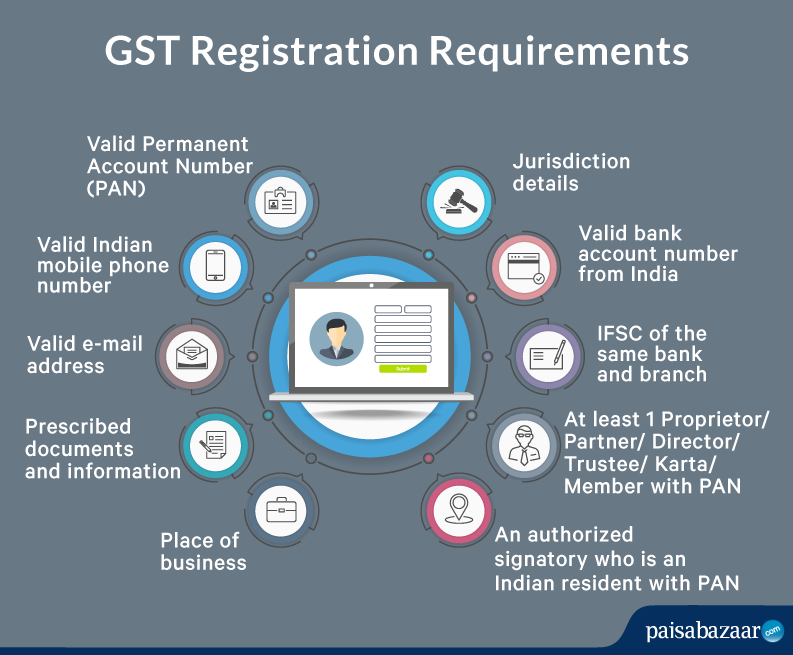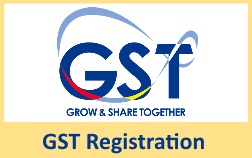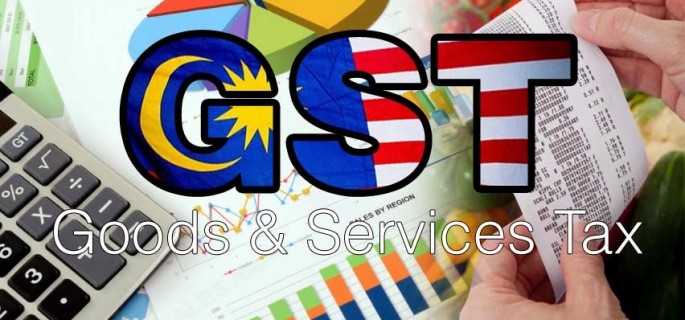Step-by-Step Refine for Singapore GST Registration Explained
Step-by-Step Refine for Singapore GST Registration Explained
Blog Article
Browsing the Complexities of GST Enrollment: Expert Tips and Best Practices for Smoother Conformity
Browsing the complex landscape of Goods and Provider Tax (GST) registration requires a keen understanding of the progressing regulative framework and precise attention to information. As businesses aim to ensure conformity and avoid pitfalls, expert support and best practices can function as vital compass points in this complex surface. From understanding enrollment demands to taking advantage of technological devices for streamlined procedures, the trip in the direction of smoother GST compliance is diverse and nuanced. Keep tuned to reveal essential methods and insights that can assist companies steer through the complexities of GST enrollment with skill and self-confidence.
Comprehending GST Registration Requirements

Along with turnover thresholds, businesses taking part in interstate sales or offering taxable services might additionally be needed to sign up for GST, even if their turn over is below the recommended restriction (Singapore GST Registration). Comprehending these requirements and thresholds is necessary to prevent penalties and make certain smooth operations within the lawful structure
Additionally, services need to collect and prepare the required documents, such as proof of identity, address, business consolidation, and bank account details, prior to initiating the GST registration process. Falling short to offer exact information or meet the registration deadlines can lead to fines or various other lawful repercussions. As a result, services need to stay notified concerning the certain GST enrollment needs applicable to their operations to preserve compliance and stay clear of potential issues.
Organizing Necessary Documents
Companies beginning on the GST enrollment process need to thoroughly compile and arrange the vital documentation required for submission. The crucial files generally required for GST enrollment include proof of company enrollment or identification, incorporation and address evidence of business proprietors or partners, checking account details, proof of major workplace, and consent kinds. Making sure that these records are conveniently available and arranged can enhance the enrollment procedure and stop delays or beings rejected.
To successfully organize crucial documents, companies need to produce a centralized system for saving and classifying the needed documentation (Singapore GST Registration). Making use of digital storage space options can aid preserve easy accessibility and make certain that papers are safely kept. Furthermore, developing a list of all essential papers can work as a practical device to track what has been collected and what is still needed for entry

Leveraging Modern Technology for Performance
Enhancing functional efficiency through technological integration is critical for modern-day businesses navigating the intricacies of GST registration. Leveraging technology can improve procedures, minimize errors, and ensure prompt conformity with GST policies. One of the crucial methods technology can help in GST enrollment is through the use of automated software options. These devices can help services track sales, generate invoices, calculate tax obligations, and send returns accurately. By automating these tasks, services can minimize manual errors and save time that would certainly otherwise be invested in repeated management work.
Furthermore, technology can facilitate smooth interaction with tax obligation authorities. Online portals and communication devices make it possible for services to send files, fix questions, and receive updates in a more efficient way. This not just speeds up the enrollment process yet also aids in maintaining clear and reputable communication with the relevant authorities.
Moreover, cloud-based storage options supply a safe and secure system for businesses to shop and accessibility their monetary information, making certain compliance with GST record-keeping needs. By centralizing information storage and automating procedures, services can enhance their overall efficiency and precision in GST registration treatments.
Proactive Compliance Tracking

To make certain efficient aggressive compliance surveillance, companies should develop robust internal controls, conduct routine audits, and utilize automation tools for real-time tracking of GST transactions. Normal training sessions for staff members on GST conformity needs can also aid in creating a society of compliance within the company. In addition, engaging with tax obligation specialists or specialists can give useful understandings and assistance on navigating complicated GST policies.
Engaging With Specialist Professionals
Engaging experienced tax professionals can significantly strengthen a company's understanding and compliance with detailed GST regulations. Professional specialists bring a riches of knowledge and experience to the table, assisting companies navigate the intricacies of GST enrollment effortlessly. By leveraging their experience, firms can guarantee exact filings, minimize the danger of mistakes, and stay up-to-date with the most recent governing changes.
When involving with specialist consultants, it is necessary to select professionals with a solid track record in GST conformity (Singapore GST Registration). Seek consultants that have a deep understanding of the relevant regulations and laws, as well as experience dealing with services in your industry. Efficient interaction is type in this collaboration, so make certain to clearly specify your expectations and establish routine touchpoints to go over progress and address any worries
In addition, Website expert consultants can provide useful insights and recommendations on enhancing your tax method, identifying potential cost-saving chances, and simplifying your compliance processes. Overall, spending in expert working as a consultant solutions can go a long method in guaranteeing smoother GST compliance and staying clear of expensive errors.
Final Thought
To conclude, browsing the intricacies of GST enrollment requires a detailed understanding of the needs, organization of essential documents, leveraging modern technology for efficiency, aggressive conformity monitoring, and engagement with specialist specialists. By complying with these finest practices, companies can make certain smoother compliance with GST policies and stay clear of prospective penalties or fines. It is necessary to remain educated, proactive, and diligent in handling GST registration to maintain compliance and maintain financial honesty.
To ensure compliance with tax guidelines, services must thoroughly understand the elaborate requirements for GST registration. Goods and Solutions Tax Obligation (GST) is a value-added tax obligation levied on most goods and services in a nation, making it critical for businesses to sign up for GST to stay clear of lawful consequences.Moreover, companies should collect and prepare the needed paperwork, such as proof of identity, address, service consolidation, and financial institution account details, prior to launching the GST enrollment procedure. Organizations should remain informed regarding the details GST registration requirements applicable to their procedures to keep compliance and prevent possible concerns.
The key documents generally needed for GST registration include proof of organization registration or address, identity and consolidation proofs of the organization proprietors or partners, financial institution account details, proof of major area of business, and consent kinds.
Report this page